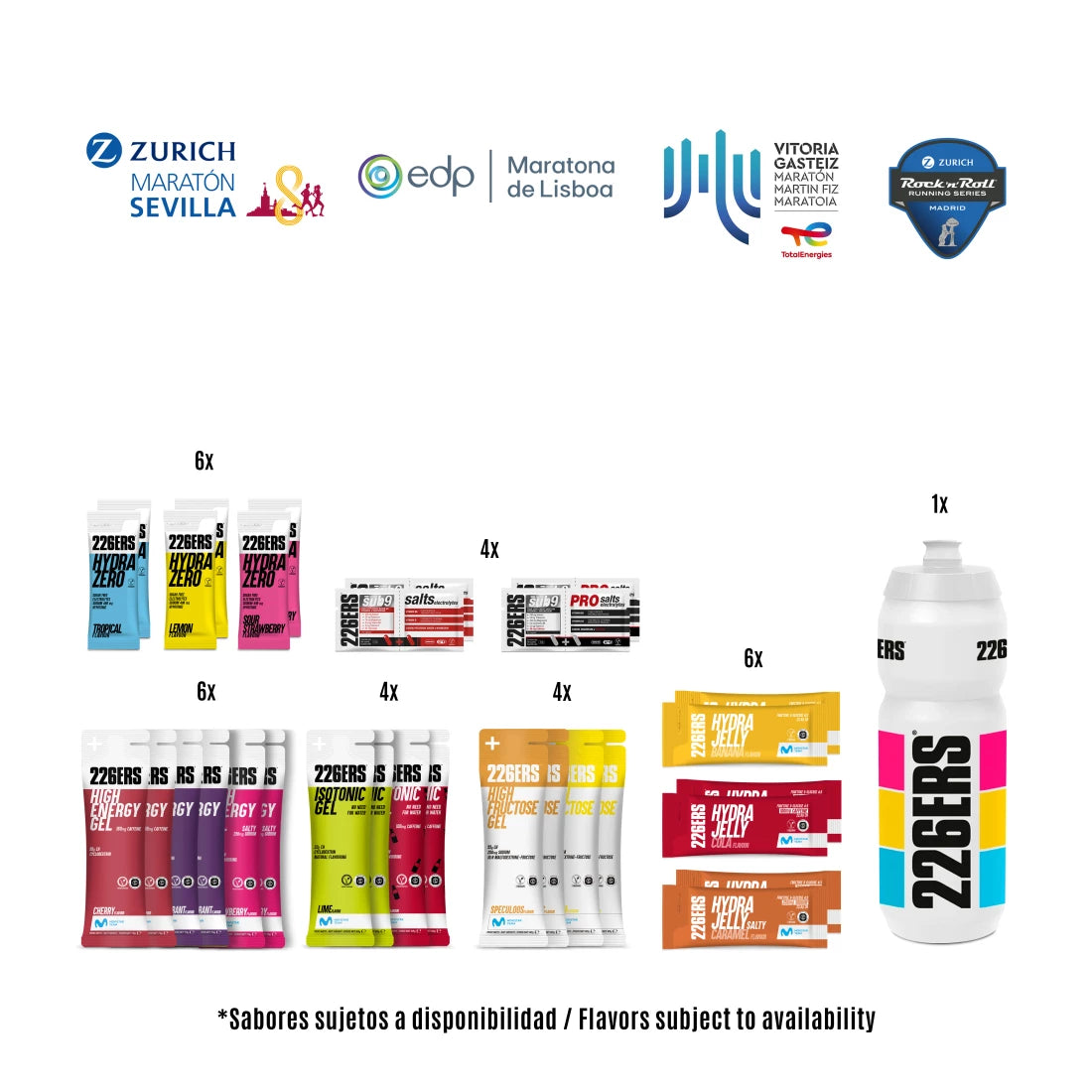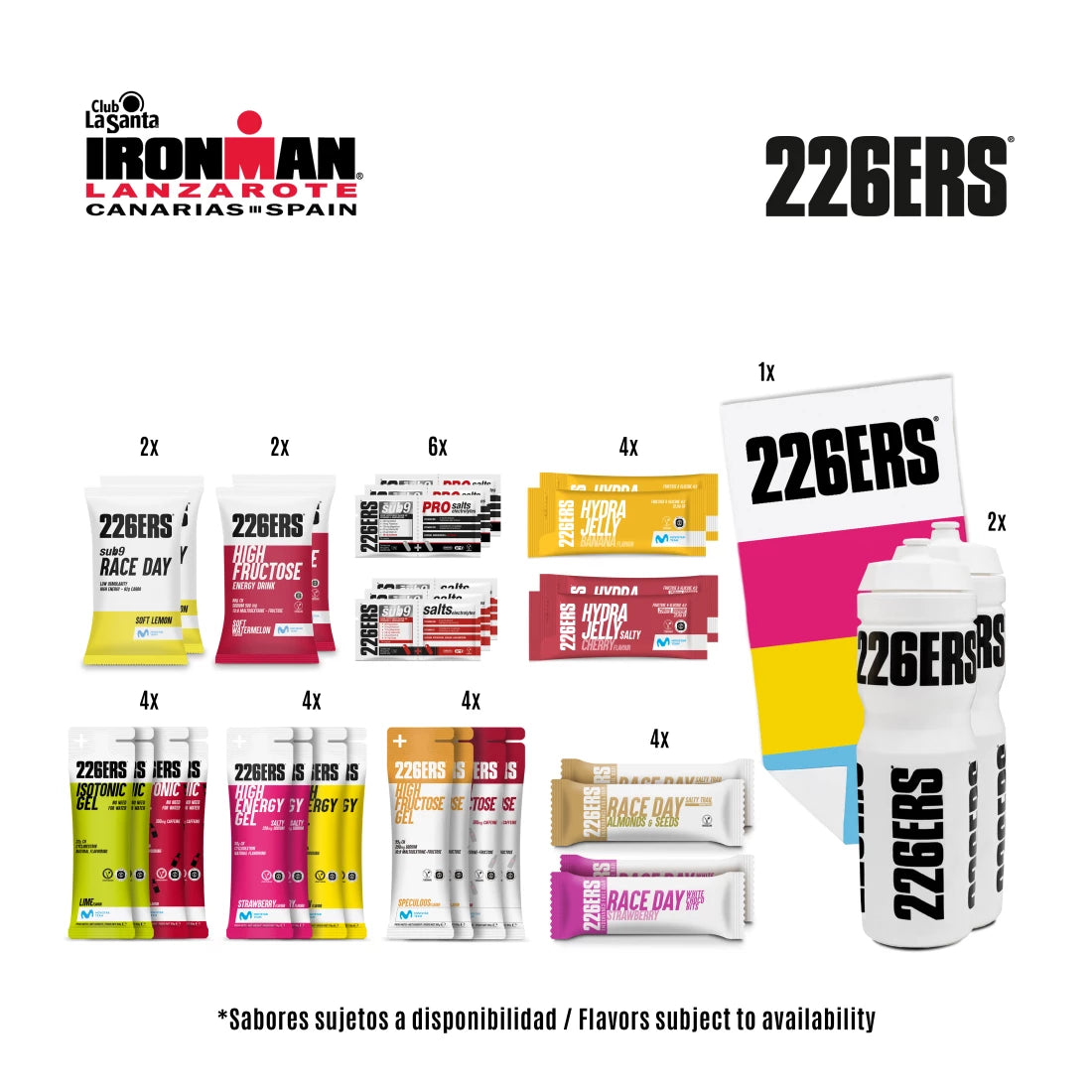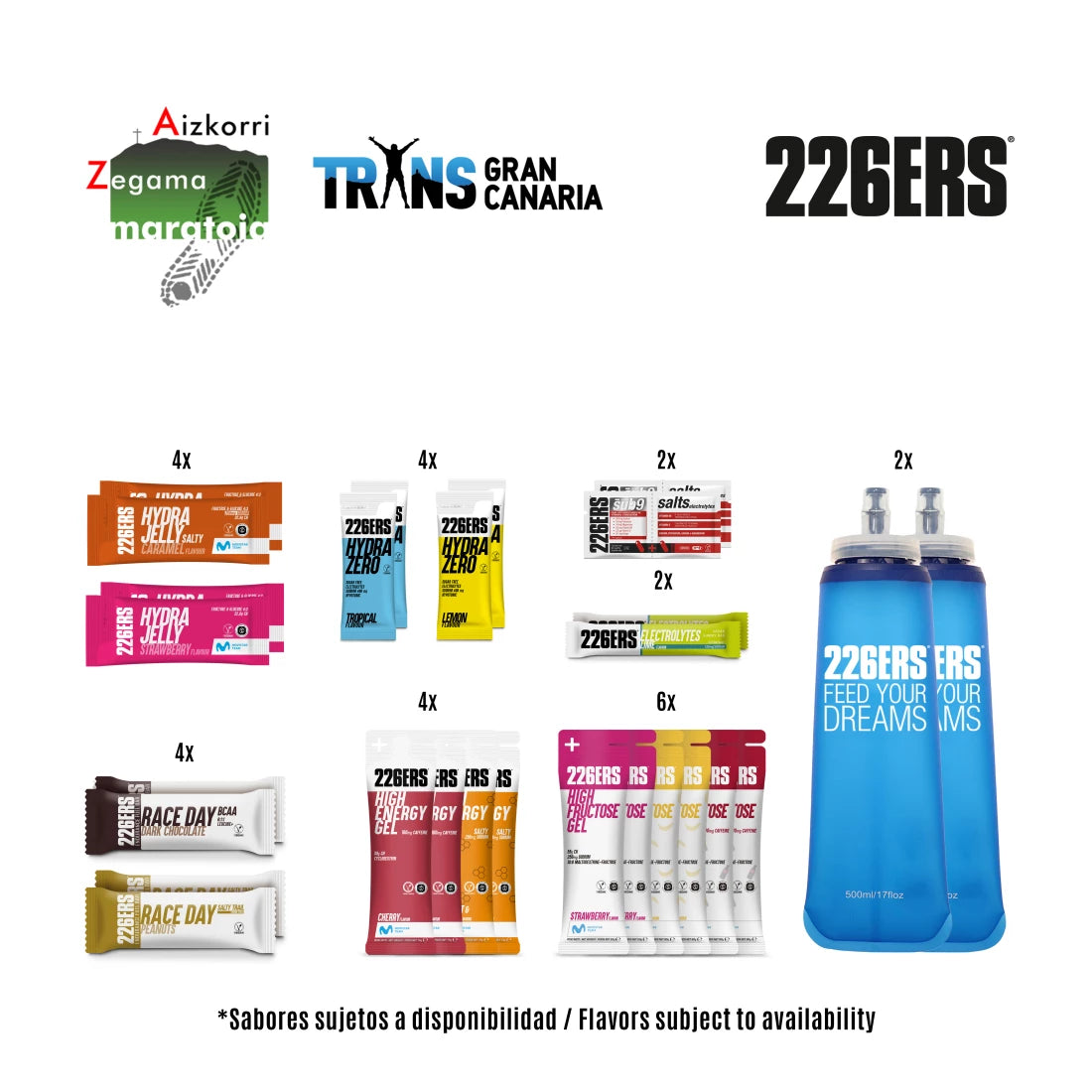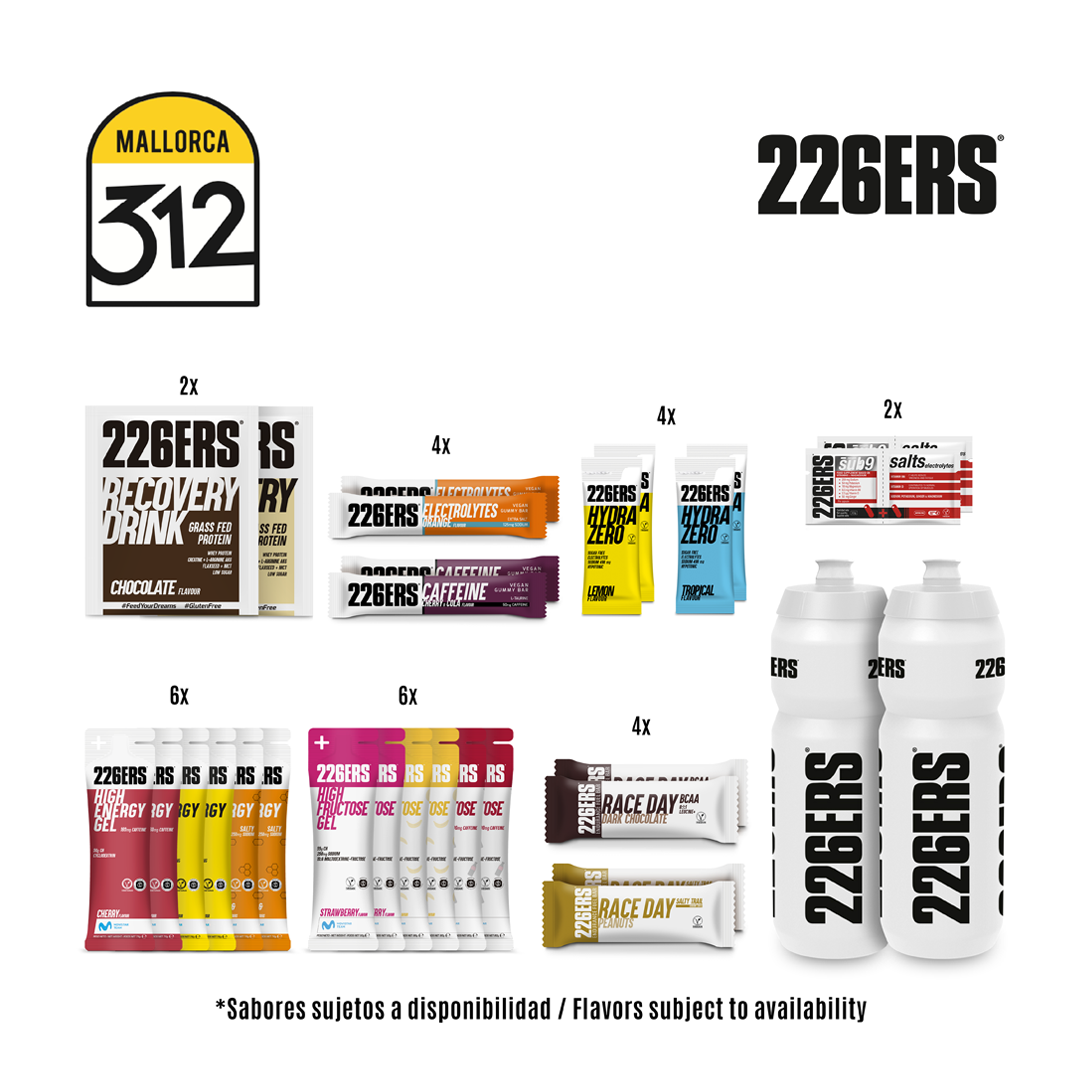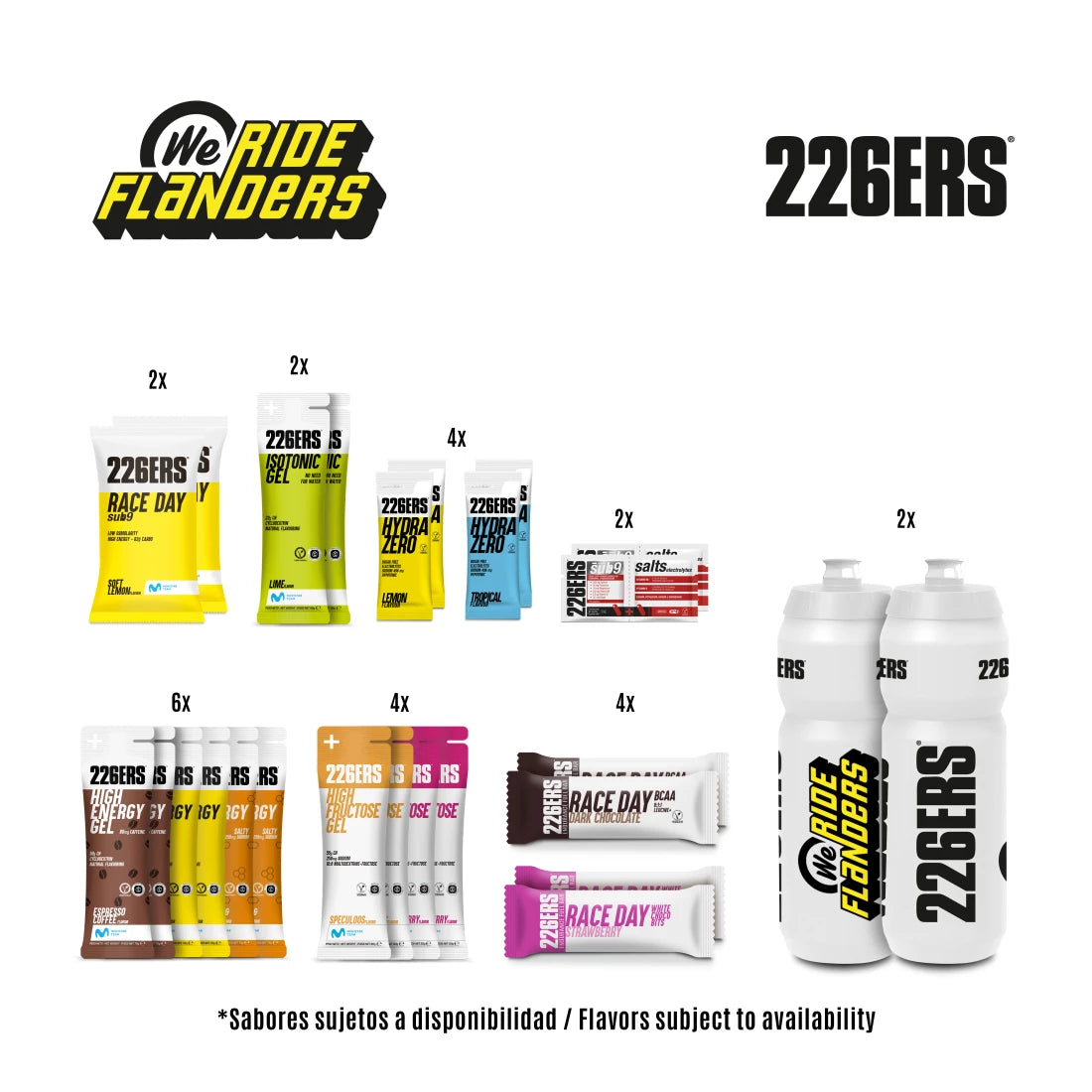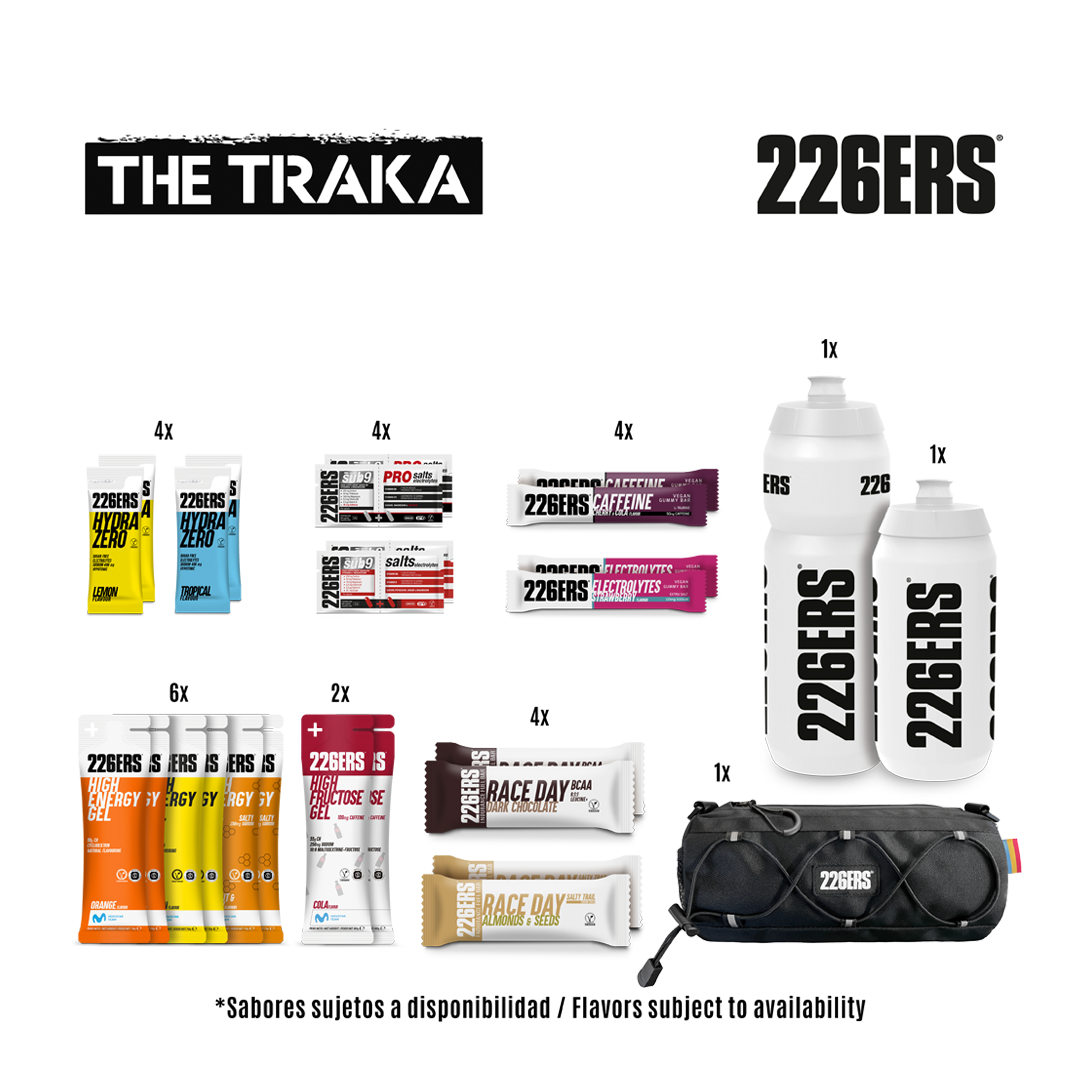MTB nutrition tips: what products and when to consume them
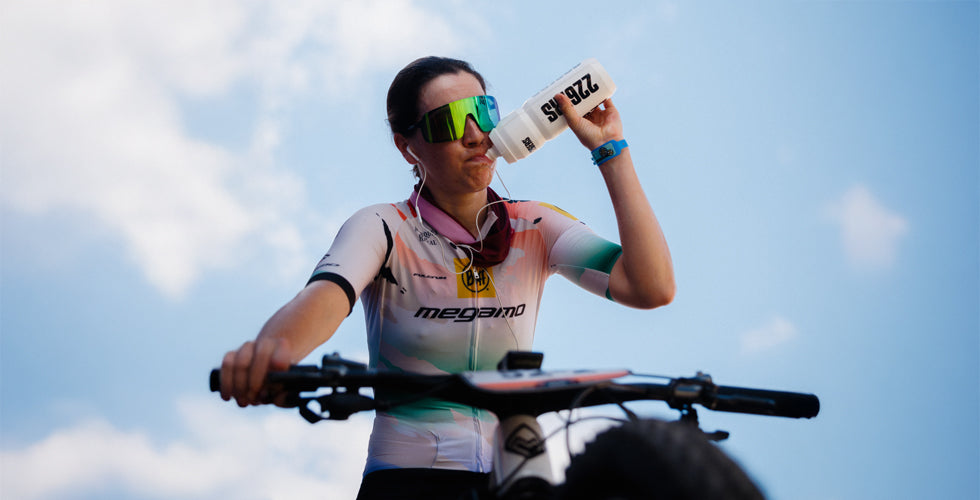
Surely all those practitioners of the Mountain Bike, both amateur and competition, have noticed the need to ingest liquids, food or supplements during their outputs and training. Who has not had a performance downturn during a session? Or who has not suffered a "bird" or cramps during some competition or training?
Depending on the objective, level of the athlete and type of work developed, it is advisable to include a series of supplements that can help maximize performance and optimize recovery. In this article we tell you how, when and why.
Importance of Nutrition in MTB
One of the questions that these athletes can be asked is if there is any type of diet for mountain runners. The answer, although broad and with nuances, if it can be given. It is advisable to follow an ideal varied diet for resistance sports, and adapt it day by day based on training needs, which is known as nutritional periodization.
But, exactly, What is food for trail running? At macronutrient level, it must contain approximately a number of protein of 1 and 2 gr / kg of body weight, depending on the level of the athlete and the training load. And most importantly, that this protein is ingested regularly and constantly every 4-6 hours, that is, a small dose for breakfast, a mid-morning snack, food, mid-afternoon snack, dinner and a pre-cut if dinner is very soon.
Recommended foods to meet these needs would be eggs, meats and grilled fish, dairy or even protein milkshakes, recovery drink or protein bars for those snack between hours or to ingest post training or pre -bed.
Energy products for MTB
One of the main aspects to consider, is the contribution of energy during the sessions, especially when they are greater than 90 minutes or are high intensity. In these cases, the cyclist must worry about providing carbohydrates, since their own reserves are limited, unlike what happens with fat.
So and as we deal with another article (The best supplements for cyclists), The contribution of 30-90 grams of carbohydrates per hour is quite recommended, always with a progression from less to more until the cyclist tolerate the intake.
For this there are several options:
Isotonic drinks: A very good alternative, which allows the contribution of carbohydrates in a sustained way and also hydrates. The only inconvenience in long sessions is that it is exhausted and you have to look
Energy bars: For long training, low intensity and when the terrain conditions allow to let go of the handlebar to eat the bar quietly or when a stop is made.
Energy Gels: For intense training and/or competition. The 50 gr carbohydrate gels option is recommended when the hourly intakes are high (90-120 gr / hour). In a simple way, a large amount of extra energy can be carried in the jersey in little space.
What to consume before an output in MTB
The most common prior to an MTB output is having ingested food, either at breakfast or food, unless the goal is an emptical training to optimize the metabolism of fats.
Meals prior to training must be rich or moderate in carbohydrates, depending on the intensity and duration of training, as well as foods that do not hinder digestion. Pasta, rice, legumes, cereals, bread, fruits and vegetables are the most recommended.
However, it can happen that the last intake prior to an exit is too much in advance and at the time of the exit the cyclist is "lazy" or with a feeling of hunger. In those cases, a fruit (banana) or even an ingested gel in the minutes before training can help.
Some athletes want or need a bit of "stimulation", for this a coffee is accustomed or a pre-workout (When taking pre -training) It can also be recommended.
Food and supplements during march
As the duration of the output or intensity increases, a greater use of supplements and food will be necessary, which must be planned in advance to be able to take them during the march.
On the one hand the liquids, being the major need in heat and humidity conditions, for this you will have to choose the number of drums that must be carried, as well as the size of them or even the possibility of carrying a hydration backpack.
On the other hand the energy in the form of carbohydrates, as commented above, with bars, gels or isotonic drink. However, they can also be complemented with other foods such as bananas, jam sandwiches or quince or dates.
Post-Return recovery: what to consume
Once the training or exit ends, you should not make the mistake of concluding everything. There begins the most important thing, recovery to guarantee the best conditions for the next training.
To do this, the basics: hydration + energy + protein. A simple and practical way to do so is the use of a recovery drink or Recovery Drink, which contains all of the above. However, there are food alternatives that can easily be prepared at home, provided that time allows it.
Liquids can be replaced with water or milk, energy with fruits or cereals and protein protein or protein -rich foods. Combining all this, we leave you some examples of "recovery homemade":
- Hard egg + fruity shake
- Greek yogurt with strawberries and blueberries
- Oatmeal with yogurt, honey and protein powder.
- Tuna + fruit sandwich
Hydration and electrolytes in MTB
A fundamental aspect for an MTB cyclist is his hydration. Water has a main thermoregulation function, that is, through sweating it is how the body cools and eliminates excess heat produced by exercise. That is why in heat and humidity conditions, in long training and intense training (or in the sum of all of the above), the intake of liquids and electrolytes is essential to be able to maintain a stable body temperature, so as not to lose performance and not to suffer problems derived from dehydration such as cramps, heat stroke or even heart problems.
To maintain adequate hydration it is advisable to ingest in a generic way between 500-800 ml of liquid per hour, which will always be adjustable to the sweat losses of each cyclist. But better than water alone, it is preferable to also take electrolytes, for a better absorption of these liquids and to protect the organism from the loss of those minerals. Therefore, isotonic drinks or drinks enriched with electrolytes (sodium, potassium, magnesium) are of interest to any cyclist in any context that "Sude".
Practical tips for optimal nutrition
To finish and complete this article, we can indicate a series of tips for any cyclist or practitioner of the MTB, in order to improve their performance or enjoy their outputs.
- Varied diet that includes fruits and vegetables daily.
- Periodize your carbohydrates, ingest more for intense days and competition, and redeem them for easy or rest days.
- Take care of your recovery, set the lost liquids after training and complement with a small snack (fruits, protein, recovery) at the end of your training sessions
- Better to increase your food rations, because you make cycling, increase your carbohydrate intake (gels, isotonic drink, bars) during training.
- Plan the nutrition of your training in advance, and especially how to carry your carbohydrates and liquids with you, or how to get them during exit.
- If you compete, do not try anything new on the day of the competition, train your digestive system testing the nutrition plan in competition during your training.


